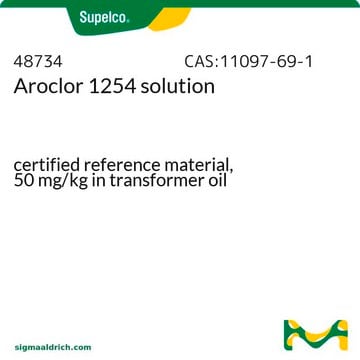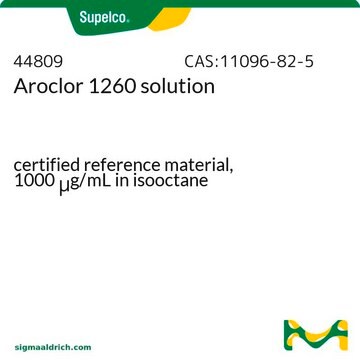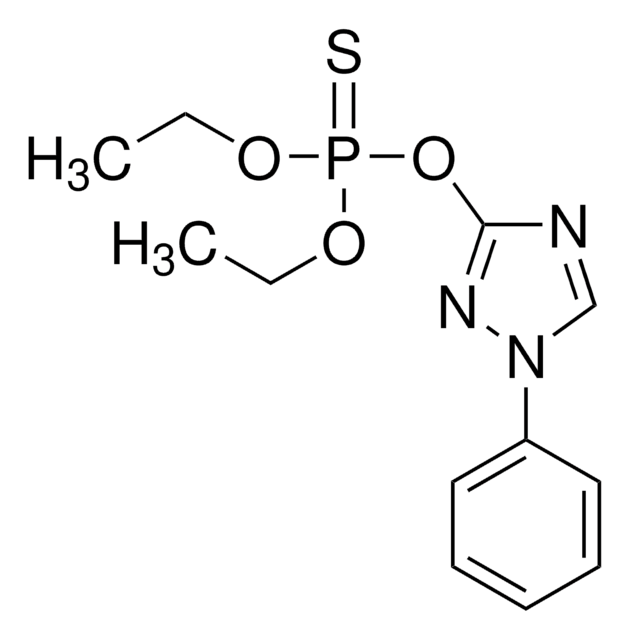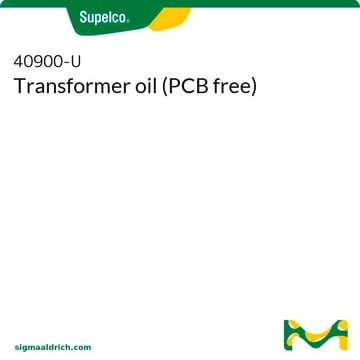48706
Aroclor 1242 solution
certified reference material, 200 μg/mL in methanol
About This Item
Productos recomendados
grado
certified reference material
TraceCERT®
Agency
EPA 505,508,8082
MISA (Canada) Group 27
Línea del producto
TraceCERT®
CofA
current certificate can be downloaded
Características
standard type calibration
envase
ampule of 1 mL
concentración
200 μg/mL in methanol
técnicas
HPLC: suitable
gas chromatography (GC): suitable
aplicaciones
environmental
Formato
single component solution
temp. de almacenamiento
2-30°C
InChI
1S/C12H6Cl4/c13-7-1-3-9(11(15)5-7)10-4-2-8(14)6-12(10)16/h1-6H
Clave InChI
QORAVNMWUNPXAO-UHFFFAOYSA-N
¿Está buscando productos similares? Visita Guía de comparación de productos
Descripción general
Aplicación
Otras notas
Información legal
Palabra de señalización
Danger
Frases de peligro
Consejos de prudencia
Clasificaciones de peligro
Acute Tox. 3 Dermal - Acute Tox. 3 Inhalation - Acute Tox. 3 Oral - Flam. Liq. 2 - STOT RE 2 - STOT SE 1
Órganos de actuación
Eyes,Central nervous system
Código de clase de almacenamiento
3 - Flammable liquids
Clase de riesgo para el agua (WGK)
WGK 2
Punto de inflamabilidad (°F)
51.8 °F - closed cup - Solvent
Punto de inflamabilidad (°C)
11 °C - closed cup - Solvent
Equipo de protección personal
Eyeshields, Faceshields, Gloves, type ABEK (EN14387) respirator filter
Elija entre una de las versiones más recientes:
Certificados de análisis (COA)
It looks like we've run into a problem, but you can still download Certificates of Analysis from our Documentos section.
Si necesita más asistencia, póngase en contacto con Atención al cliente
¿Ya tiene este producto?
Encuentre la documentación para los productos que ha comprado recientemente en la Biblioteca de documentos.
Active Filters
Nuestro equipo de científicos tiene experiencia en todas las áreas de investigación: Ciencias de la vida, Ciencia de los materiales, Síntesis química, Cromatografía, Analítica y muchas otras.
Póngase en contacto con el Servicio técnico









